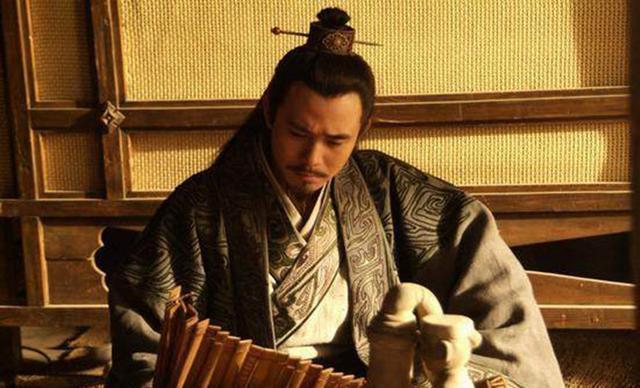In ancient China, there was neither a military expert, nor a strategist or tactician, and in ancient China there was a unified title called "strategist". "Scholar" is a reader, and "conspiracy" is a strategist, a strategist, or a strategist. That is, to think of some way to make something successful.

(Strategists in the army, trying to take their meaning)
In the earliest wars, there was no such thing as a strategist. After experiencing the Spring and Autumn Warring States, especially the widespread appearance of soldiers and Zonghengjia, the "strategists" group gradually became independent in the war. They existed in opposition to the military generals and became two important groups in the army.
For example, in the Chu-Han War, Zhang Liang, Chen Ping, and Li Shiqi were several important strategists of Liu Bang. Cao Shan, Zhou Bo, and Dou Bao were also important military generals of Liu Bang. However, strategists and military generals are not absolutely separated, such as Han Xin, who is both a strategist and a military general, and both are very outstanding. So, what is the difference between a military and a strategist and a tactician?
In fact, this is a concept with an inclusion relationship. The military is a big concept, and the strategist and tactician are a small concept.
(Chu-Han War)
What the military scientists are talking about is a term for all those who have engaged in military activities and have achieved relatively great achievements. Such people, of course, include strategists such as Zhang Liang, Chen Ping, and Li Shiqi, as well as military generals such as Cao San, Zhou Bo, and Dou Bao, as well as military all-rounders like Han Xin. Of course, it also includes People in charge of logistical support such as Xiao He, and even army leaders like Liu Bang. As the saying goes, "the soldiers and horses have not moved, the grain and grass have gone first", without the logistical support of people like Xiao He, it would be impossible for the Liu Bang clique to win the battle. In particular, in the process of fighting, Liu Bang was defeated many times by the whole army, and it was Xiao He who re-organized the source of troops for him, so that he could start again. As the leader of the entire military group, Liu Bang's attention to and use of military talents is also very large. To say that he is a military man makes sense.
Strategist is a relatively small concept, and it is also a concept that exists relative to tacticians.
The so-called tactics are actually the specific way to fight a certain war. For example, Han Xinxin secretly crossed Chen Cang to fight Guanzhong, and used the backwater battle to take zhao guo and so on. This is an actual tactical use. In actual warfare, tactics are used well and are generally referred to as tacticians. Of course, sometimes the concept of military scientist is also used to collectively refer to it.
Strategist is a concept as opposed to tactician. Strategists, however, are a very important type of person, and the most central type of person in a military bloc. Whether a military bloc can ultimately win victory is crucial to the role of strategists. If there are no good strategists in a group, even if there is a large group of fierce generals, the group cannot win.
(Liu Bang and Xiang Yu)
The most important difference between Liu Bang Group and Xiang Yu Group is that although The Xiang Yu Group is like a cloud, it does not have a good strategist, even Fan Zeng is not a real strategist, he did not make a good strategic plan for Xiang Yu, and in the end Xiang Yu also drove him away. The Liu Bang Group is different, and the three important strategists of the Liu Bang Group are Zhang Liang, Chen Ping, and Li Shiqi. Among them, Chen Ping can be called a tactician, he has six major plots in his life, these six major plots are some specific practical cases, the effect is very good, but also reflects That Chen Ping, a tactician, has a strong ability to respond to the scene. Li Shiqi was a very immature strategist and tactician. He had two major strategic and tactical operations in his lifetime. A major operation was to let Liu Bang engrave a seal and send it to the descendants of the Six Kingdoms, and let the descendants of the Six Kingdoms raise troops to fight Xiang Yu and lift Xiang Yu's siege of Liu Bang. One was to persuade the King of Qi to surrender to Liu Bang. The former is strategic planning and the latter is tactical arrangement. However, these two strategies were successively rejected by Zhang Liang and Han Xin, and Li Shiqi was also cooked to death by the King of Qi. Zhang Liang was an outstanding strategist for Liu Bang, he had done a lot of strategic planning for Liu Bang, and it was under Zhang Liang's many outstanding strategic plans that although Liu Bang had wiped out the army countless times, he finally regrouped and became strong.
After Liu Bang's success, when evaluating the heroes, Zhang Liang, as a strategist, was ranked first, believing that he was in the midst of planning and winning thousands of miles away. This shows the importance of strategists in the entire military system.
Of course, when we mention strategists now, we are no longer just talking about the military, but when we plan the layout at all levels, we will talk about the concept of strategists. In this way, the strategist has a metaphorical meaning, and the scope is so large that the military can no longer cover the strategist.
(Reference: Chronicle of History, etc.)